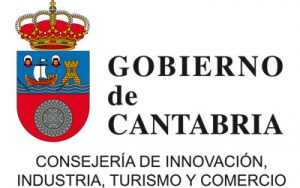Alzheimer Monitoring Through Artificial Intelligence
Project co-financed up to 50% of the operation’s value by the Directorate General for Innovation, Technological Development, and Industrial Entrepreneurship of the Ministry of Innovation, Industry, Tourism, and Commerce of the Government of Cantabria, and by the European Union through resources from the European Regional Development Fund (ERDF) via the ERDF Operational Program 2014-2020 of Cantabria. Operation: INNOVA Grants 2021. File 2021/INN/62.


PROJECT OBJECTIVE
Brief description of the project’s objective within the company and the improvement opportunities it represents.
Currently, there is a trend to study how neurological disorders manifest early through patients’ difficulties in performing trivial movements. These motor difficulties have been extensively evaluated in laboratories for mobility studies. These laboratories use high-precision body sensors, cameras, and software that allows analyzing the gestures and movements of the subject under evaluation with great precision.
The possibility of diagnosing neurological disorders from the angle of symptoms associated with movement difficulties represents a groundbreaking novelty. However, this possibility is associated with economic challenges when trying to equip health centers with laboratories dedicated to mobility studies. Additionally, the current era marked by COVID-19 demands diagnostic methods that can be applied telematically without the patient having to attend the health center in person. This situation leads us to consider the challenge of studying whether it is feasible to design virtual movement study laboratories to provide telematic support for the diagnosis and monitoring of Alzheimer’s disease.
To conduct this analysis, it is proposed to build a virtual movement laboratory prototype with which experiments can be carried out for the study. This virtual laboratory prototype will consist of the following components that will operate in association:
- The prototype of an app that allows capturing patient movement data from the sensors available in smartphones (accelerometer, gyroscope, etc.).
- Computational models to represent the execution of movements.
- Software based on automatically learned convolutional neural networks that allow predicting the stage of Alzheimer’s disease from the computational models describing the execution of movements.
- Web services to communicate the predictions of the convolutional neural network to systems managed by healthcare personnel in an interoperable manner.
- The prototype of a dashboard that allows neurologists to know the generated computational models, predictions about the evolution of Alzheimer’s disease, and cross-reference this information with the patient’s previous medical history.
- The research will evaluate the following three aspects to determine the feasibility of the proposal evolving into a marketable product in the future:
- A study with patients that allows determining the success rate in correctly predicting the state of Alzheimer’s disease. This success rate will be quantified as the percentage of agreement between the results of the convolutional neural network and the diagnoses of the neurologists of the participating patients.
- An evaluation according to the ISO/IEC 25000 family of standards, known as SQuaRE (System and Software Quality Requirements and Evaluation), which allows measuring in a standardized way the compliance with essential functional and non-functional requirements in the virtual laboratory infrastructure (security, performance, reliability, etc.).
- An evaluation by neurologists of the impact of the proposal on the diagnosis and monitoring of Alzheimer’s disease compared to the current situation.”
INNOVATION
Industrial Research
Probably, the most remarkable feature of the research is its innovative nature, as it is a way to analyze the evolution of Alzheimer’s disease from a technological approach. The evaluation and analysis of the feasibility of the results obtained in this project to understand the monitoring of Alzheimer’s disease would allow us to make innovative decisions in the future about feasible u-health solutions for healthcare personnel to telematically monitor patients.
The most significant technological alternatives to what is proposed in this project consist of conducting gait studies in laboratories specialized in movement analysis. In contrast to these alternatives, this project aims to evaluate whether it is feasible to adopt solutions based on a product that can be used more comfortably, through the mobile phone, as it allows constant patient monitoring at a lower cost than that of a movement analysis laboratory.
Having techniques that allow using u-health solutions to infer the stage of Alzheimer’s disease would open the door to creating products that could benefit a large number of patients, as this pathology has a high prevalence. Furthermore, the fact that the patient only carries a small mobile phone in their pocket makes it suitable for comfortable and safe use. In short, it is foreseeable that this research will allow us to make future design decisions for software applications with a significant market impact, not only because of their unique nature and the wide variety of patients who can benefit from it but also because of other features that allow optimal applicability, such as ease of use, safety for the patient, and speed of the procedure, all at a low cost.
If the results of this project allow building virtual laboratories to monitor the evolution of Alzheimer’s patients, it would be possible to propose new services to care for people with this pathology from their homes. These services to telematically monitor patients without attending the medical consultation in person would be particularly timely in the post-COVID-19 era, where there is a demand to restrict social contact and, at times, home confinements are imposed.
The project is located in a transversal technological area as outlined in the Smart Specialization Strategy RIS3 of Cantabria. In this case, it proposes the exploitation of ICT in the healthcare field.
Our spanish offices
Find the closest office to you or write us to atnaxpe@axpe.com
A Coruña
C/ Real, 74-76 15003
La Coruña
Tel: (+34) 915 901 960
Asturias
Parque Tecnológico Asturias,
Edificio Centroelena II, 2B,
33428 Llanera, Asturias
Tel: (+34) 984 498 079
Barcelona
Passeig de Gracia, 54, 6ª planta
08007, Barcelona
Tel: (+34) 932 411 463
Bilbao
Gran Vía de Don Diego López de Haro, 1,
48001 Bilbo,
Bizkaia
Cantabria
Polígono Camargo 16 39600,
Camargo (Cantabria)
Telf: (+34) 942 945 033
Madrid
C/ Arturo Soria, 122 28043,
Madrid
Tel: (+34) 915 901 960
C/ María de Portugal, 1, Planta 3ª,
CP 28050, Madrid
(Arktic)
Salamanca
C/ Toro, 76, 1ºd 37002
Salamanca
Tel: (+34) 915 901 960
Valladolid
Paseo Arco de Ladrillo, 92
47008, Valladolid
Tel: (+34) 983 548 063
Vitoria
Avenida de los Olmos, 1 01013,
Vitoria-Gasteiz
Tel: (+34) 945 359 705
Our international offices
Londres
Royds Withy King.
69 Carter Lane.
London. England
París
Patchwork Saint Lazare 3
Rue de Stockholm 75008 Paris,
Francia
Florida, USA
C/O Quest Workspaces One Biscayne Tower,
LLC 2S Biscayne Boulevard,
Suite 3200 Miami,
FL 33131


